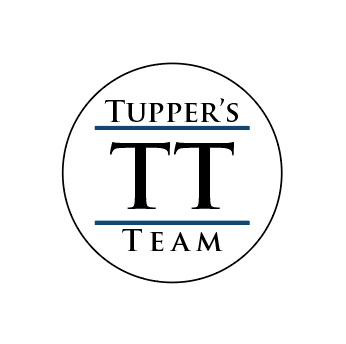Savvy Saving with Your Mortgage
Putting an Extra $2K Toward Your Home Loan Can Save You $110K
Owning a home comes with an array of expenses, but savvy saving can help take the burden off of the lengthy mortgage and put money back into your pocket faster.
Jewel Addison, a real estate broker in Fairbanks, AK, shared her tips in a recent Facebook Reel. Her advice to homeowners with a mortgage: Put a little more toward your principal.
Addison gave the example of buying a $400,000 home in Fairbanks with a 7% interest rate. She explained how, over 30 years (the length of a traditional 30-year fixed mortgage), a homeowner would pay $558,000 in interest.
“If you put an extra $2,000 a year toward your principal, you’ll save $110,000 in interest,” Addison said.
The more you pay down your principal, the lower the interest payments over the course of the loan.
“If you put an extra $5,000 a year, you’ll save $207,000 and pay off your home faster,” added Addison. “That’s a whole decade of no mortgage payments.”
Taking years off your loan
“Between higher home prices, heating costs, and everyday expenses, I know that paying extra toward your mortgage every year might not be in your budget,” Addison said. “But there’s another way to whittle away that interest without feeling the pinch: Switch to biweekly mortgage payments.”
Instead of one monthly payment, a biweekly payment would be every two weeks.
“You’d make half-payments every two weeks, which adds up to one extra mortgage payment per year without you even noticing,” Addison said.
She highlights the benefits:
Cut down the interest you pay over the life of your loan.
You could pay off your home four to six years faster without a huge financial strain.
That’s thousands saved just by adjusting how you pay.
“It’s a small shift that makes a big impact, without needing to find extra money in your budget,” she said. “Paying down a mortgage faster means your next home may be closer than you think.”
What is principal
Principal and interest payments on a mortgage are the main parts of a loan.
The principal is the amount you borrowed and have to pay back.
The interest is what the lender charges for "lending" the money—this is in addition to your principal.
It's important to look at terms of your total monthly payment, so that there are no surprises. Sometimes lenders require you to pay taxes and insurance in advance by placing them in an escrow account. If there's no escrow payment listed on your loan estimate, then the costs won't be added to your monthly payment to your mortgage lender.
Home loans
There are a variety of loans to finance a home purchase. The most traditional is a 30-year fixed loan. That means you’ll have 30 years to pay off a loan at a set interest rate that’s locked in once you’re approved.
Mortgage interest rates have been near the 7% mark. The average rate for a 30-year fixed loan is 6.81% for the week ending June 18.
Your credit score plays a role when you apply for a mortgage. A credit score will determine whether you qualify for a mortgage and the interest rate you'll receive. The higher the credit score, the lower the interest rate you'll qualify for. For perspective, a score of 620 is considered a “fair” score.
Selling Your Home?
Get your home's value - our custom reports include accurate and up to date information.




